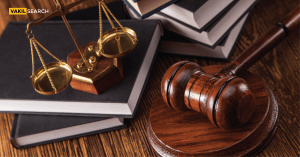Table of Contents
ToggleBackground of the Case
The Bombay High Court will soon decide if the customs duty demand of USD 1.4 billion against Skoda Auto Volkswagen India is time-barred. This ruling follows extensive arguments from both sides about the legitimacy of the customs authorities’ show cause notice (SCN).
Arguments Presented
Volkswagen’s lawyer, Arvind Datar, stressed the seriousness of the situation. He argued that the customs duty demand could threaten the company’s survival in India. Datar labeled the demand “unreasonable” and questioned how the company could pay such a large sum after over a decade of consistent classifications.

Focus of the Bombay High Court
After six days of hearings, the Bombay High Court bench, led by Justices BP Colabawalla and Firdosh Pooniwalla, stated that their ruling will focus solely on whether the SCN is time-barred. The court noted that even if Volkswagen’s petition succeeds, customs authorities could still act under Section 28 of the Customs Act for any suppression of facts.
Customs Authorities’ Position
The customs authorities must respond to Volkswagen’s claims by March 10. They need to address the lack of communication before 2023. Volkswagen accused the customs department of taking 12 years to review shipment records. In contrast, customs officials argued that delays occurred because the company did not provide necessary documents on time.

Legal Implications
The customs duty demand arises from allegations that Volkswagen misclassified its imports of Audi, Skoda, and Volkswagen cars. The company declared its imports as “individual parts” rather than “Completely Knocked Down” (CKD) units. This misclassification led to significantly lower customs duties. CKD units incur a customs duty of around 35%, while the declared imports faced a tax of approximately 15%.
Court’s Observations
The Bombay HC questioned the classification of the imports. The court suggested that if most parts come in as individual components and then assemble, they should classify as CKD units. The court emphasized the need to follow government notifications to prevent circumvention of tax regulations.
Conclusion
As the Bombay High Court prepares to deliver its ruling, the outcome could significantly impact Volkswagen’s operations in India. This decision will address the time-barred issue and set a precedent for how automotive imports are classified and taxed in the future.
- Bombay High Court to Rule on VW’s Time-Barred Customs Duty Demand - February 27, 2025
- SMA Treatment Funding in India: Supreme Court Stays Order - February 26, 2025
- Skoda Auto Volkswagen India duty evasion - February 25, 2025

